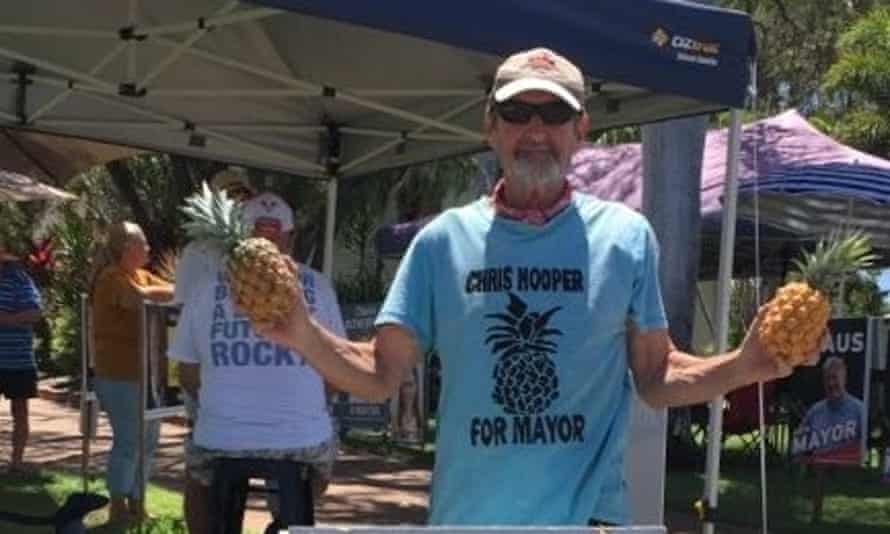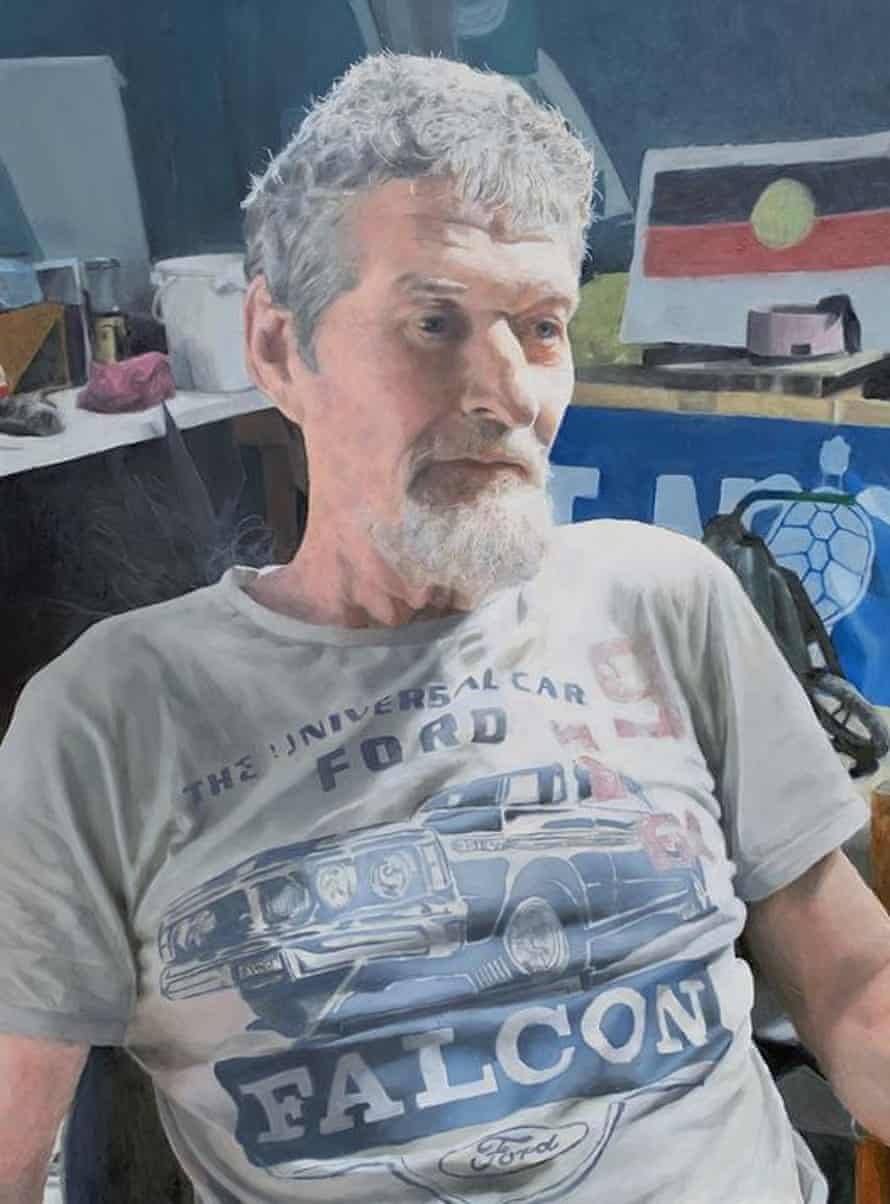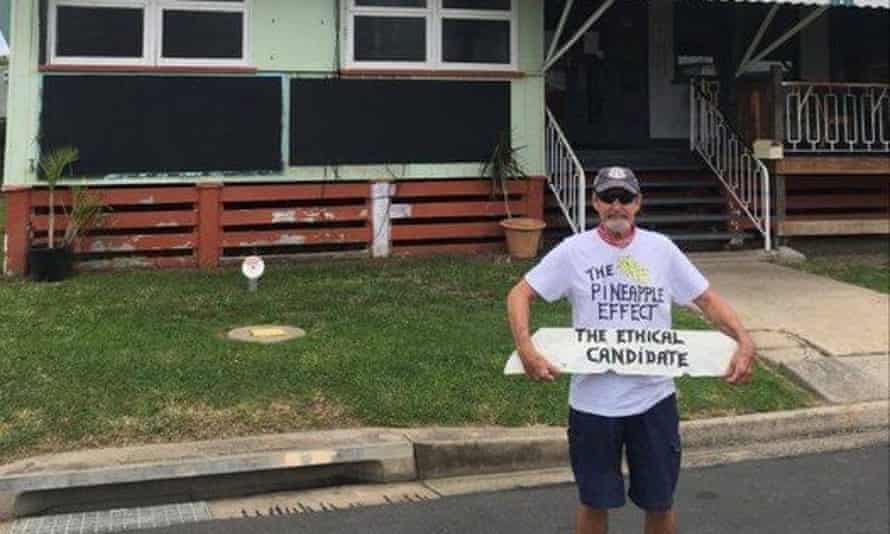Extract from The Guardian
‘Accidental’ mayor, elevated to top job under a controversial runner-up succession rule, claims moral (if not actual) victory

A barefoot climate change activist dubbed Queensland’s accidental mayor appears set to fail in his bid to put the coal and beef-loving city of Rockhampton on a greener path.
Chris “Pineapple” Hooper, a bike-riding, self-declared ratbag, is running third as the count continues in Saturday’s mayoral byelection, sparked by the shock resignation of long-serving civic leader Margaret Strelow in November 2020.
Hooper garnered a cult-like following in the regional city after he was momentarily – but unofficially – elevated to the city’s top job under controversial changes the state Labor government made to the Local Government Act earlier in the year.
Those changes allowed runners-up in council elections to automatically step up if a mayor or councillor died or quit in the first year of their term, without the need for the byelection.
That’s exactly what happened when Strelow quit after a councillor conduct tribunal found she’d engaged in misconduct by failing to properly disclose hospitality received from Adani, the mining giant developing a vast coalmine north-west of Rockhampton.
Hooper was Strelow’s sole challenger when Rockhampton went to the polls in March last year, winning 31% of the vote. The former train driver, who shuns shoes and likes to get around town on vintage bicycles, was stunned to learn he would be handed the mayoral chains.

Some voters reacted with outrage, saying it was entirely undemocratic to have a mayor thrust upon them without any say in the matter, a position backed by the Local Government Association of Queensland. But others dug in behind Hooper, saying the mayoralty was rightfully his under the rules of the day.
Hooper, a vocal opponent of the Adani mine, never got to be sworn in and immediately vowed to run in the new mayoral contest. But despite giving it his best shot, he’s on track for defeat after Saturday’s poll.
On Sunday morning, a preliminary count of about 80% of votes had Hooper in third place on 12%, well behind frontrunner and veteran councillor, Tony Williams, on 25%.
Hooper hasn’t yet given up hope. With a record field of 17 candidates, he’s hoping preference flows could reverse his fortunes. But even if the mayoralty remains out of his grasp, the self-funded retiree who runs a colourful drop-in centre for artists in the heart of Rockhampton, feels like he’s had a moral victory.

“It doesn’t look good as far as being the mayor, but there’s probably a slight chance. We’ll have to see how the preferences pan out,” he told Guardian Australia.
“We’ve had a good run, had a lot of fun. A lot of people were very keen on me getting in to set a precedent for other environmentalists to get councils and the government to become more environmentally friendly. So we’ve got a win, even without getting in.”
Hooper – whose experience inspired supporters to create dozens of hand-painted signs that spontaneously began appearing in windows and on fences – says he’ll continue with his activism and has been invited to speak at an Invasion Day rally on Tuesday, which is Australia Day.
He’s even exploring the option of having a documentary made about his strange foray into politics. And he’s stoked that a Queensland artist Huon Kane has painted his portrait and hopes to enter it in the Archibald prize.
“Growing up being told that you have a head like a pineapple, you never expect that someone will want to paint your portrait for such an esteemed competition,” Hooper says.
Frontrunner Williams isn’t ready to claim victory just yet, but he has told Guardian Australia he’s “quietly confident”. He admits to being worried during the campaign about the level of support Hooper might attract.
“[Voters] felt it was wrong, what happened. That was always a concern of mine, that there was a protest vote and a sympathy vote there for Chris. But I tried not to let that interfere with my campaign.”
When the state government changed the Local Government Act last year to include the runner-up succession law, Hinchliffe said it was designed to discourage mayors and councillors from using local government elections as a platform for a tilt at state politics.
Local and state elections are now held in the same year, every four years, in Queensland, and council elections precede state polls by seven months.
But it was branded an undemocratic misstep, with the Local Government Association of Queensland demanding the law be repealed.
“Mayors and councillors from across Queensland have made clear their concerns; the current runner-up provisions are undemocratic and could see candidates who receive only a small percentage of the vote elevated to office,” LGAQ CEO Greg Hallam said last year.
“A byelection is the best way to ensure the candidates to fill these vacancies have the support of the people they will represent.”
No comments:
Post a Comment